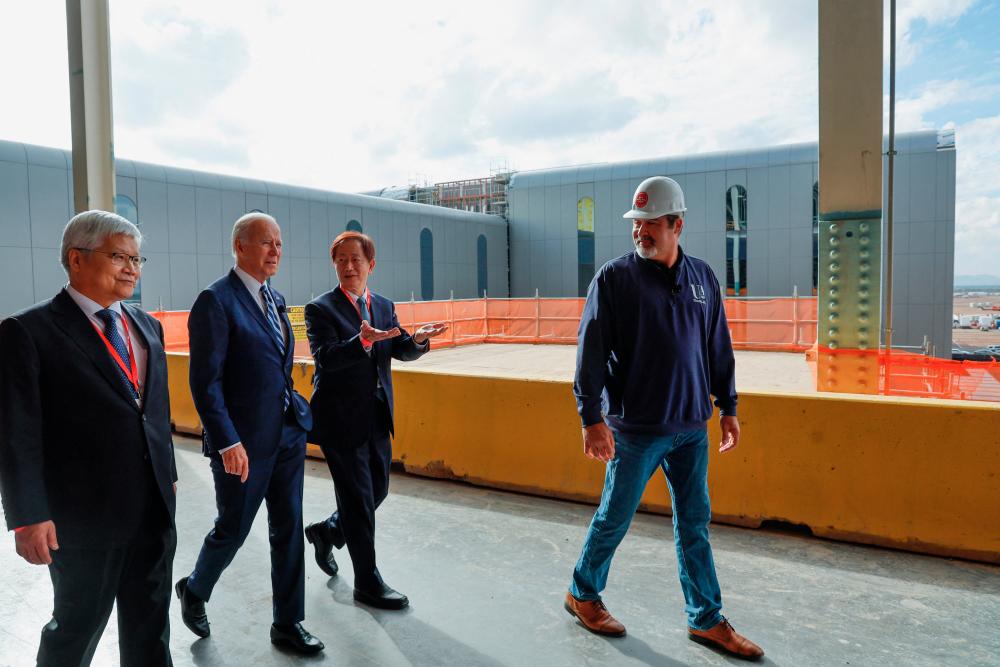WASHINGTON: President Joe Biden flew to Arizona on Tuesday (Dec 6) to celebrate the mammoth expansion of a Taiwanese semiconductor plant, citing the project as proof that the United States is finally breaking dangerous dependency on foreign manufacturers for the vital component.
The project by TSMC, the world’s biggest maker of leading-edge chips, would go a long way to meeting the US goal of ending reliance on factories based abroad – particularly in Taiwan.
TSMC, or Taiwan Semiconductor Manufacturing Company, announced it is building a second facility in Phoenix by 2026, ballooning its investment from US$12 billion to US$40 billion, with an eventual target of producing some 600,000 microchips a year.
About 10,000 high-tech jobs will be created once both plants are working, the company said.
The “major milestone” adds up to “the largest foreign direct investment in Arizona history and it’s one of the largest in US history”, White House National Economic Council Director Brian Deese told reporters.
Biden was accompanied by senior political figures and titans of the corporate world, including Apple CEO Tim Cook, TSMC's founder Morris Chang and Micron CEO Sanjay Mehrotra.
Deese said the array of executives reflects “that this is about more than just one groundbreaking, but how we build out this innovation ecosystem for semiconductors in the United States”.
Biden will also seek to take political credit for the investment influx, pointing to the effect of his signature CHIPS Act, which sets aside almost US$53 billion for subsidies and research in the semiconductors sector.
It's a message he'll be especially keen to spread in Arizona, which was long a Republican-dominated state but has turned into a battleground where the president's Democrats do increasingly well.
The White House is encouraging microchip manufacturing projects around the country in a strategic effort to shift the center of gravity of the global industry.
Most current US supply comes from overseas. Although the companies are largely based in reliable US allies in Asia, the sheer distance and, especially, the geopolitical tensions around Taiwan, have the government and companies like Apple nervous.
The miniscule, hard-to-make gadgets are at the heart of almost every modern appliance, vehicle and advanced weapon.
The new TSMC plant will produce state-of-the-art 3-nanometre chips, while the existing facility will start reducing the size of its current 5-nanometre chips to a more sophisticated 4 nanometres.
The twin plants “could meet the entire US demand for advanced chips when they’re completed. That’s the definition of supply chain resilience”, Ronnie Chatterji, National Economic Council deputy director for industrial policy, told reporters.
Deese, one of Biden’s most senior advisers, said the broader message is of a revitalised US industrial philosophy.
For almost four decades, the idea was “trickle down,”, where government would “get out the way” and cut taxes for big companies to attract investment, he said.
Instead, Biden’s policy – both through the CHIPS Act and the giant Inflation Reduction Act – is using public money to attract, or “crowd in”, private investment.
The goal is not to exclude “private companies, but in fact, encouraging private investment at historic scale”, Deese said. – AFP









